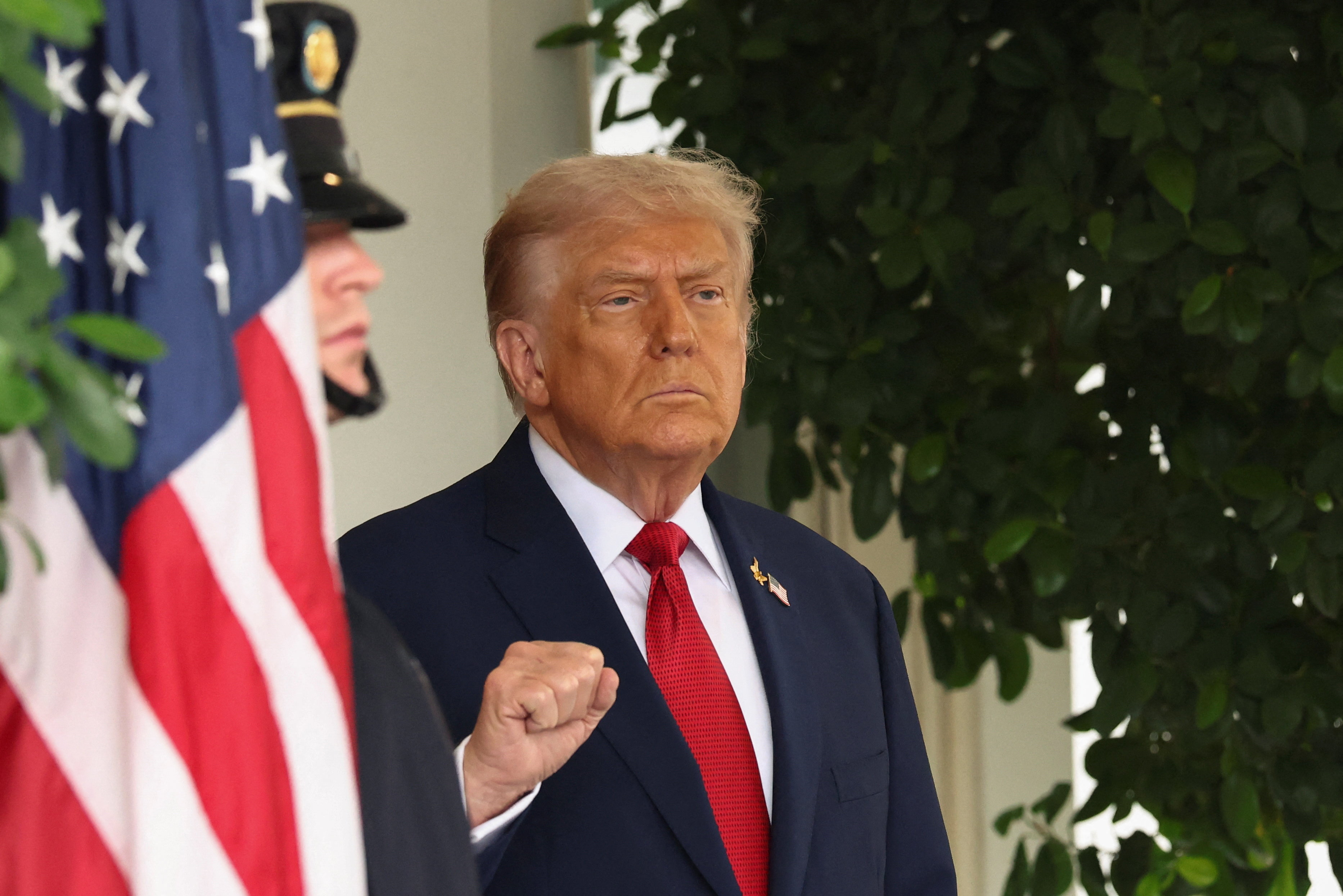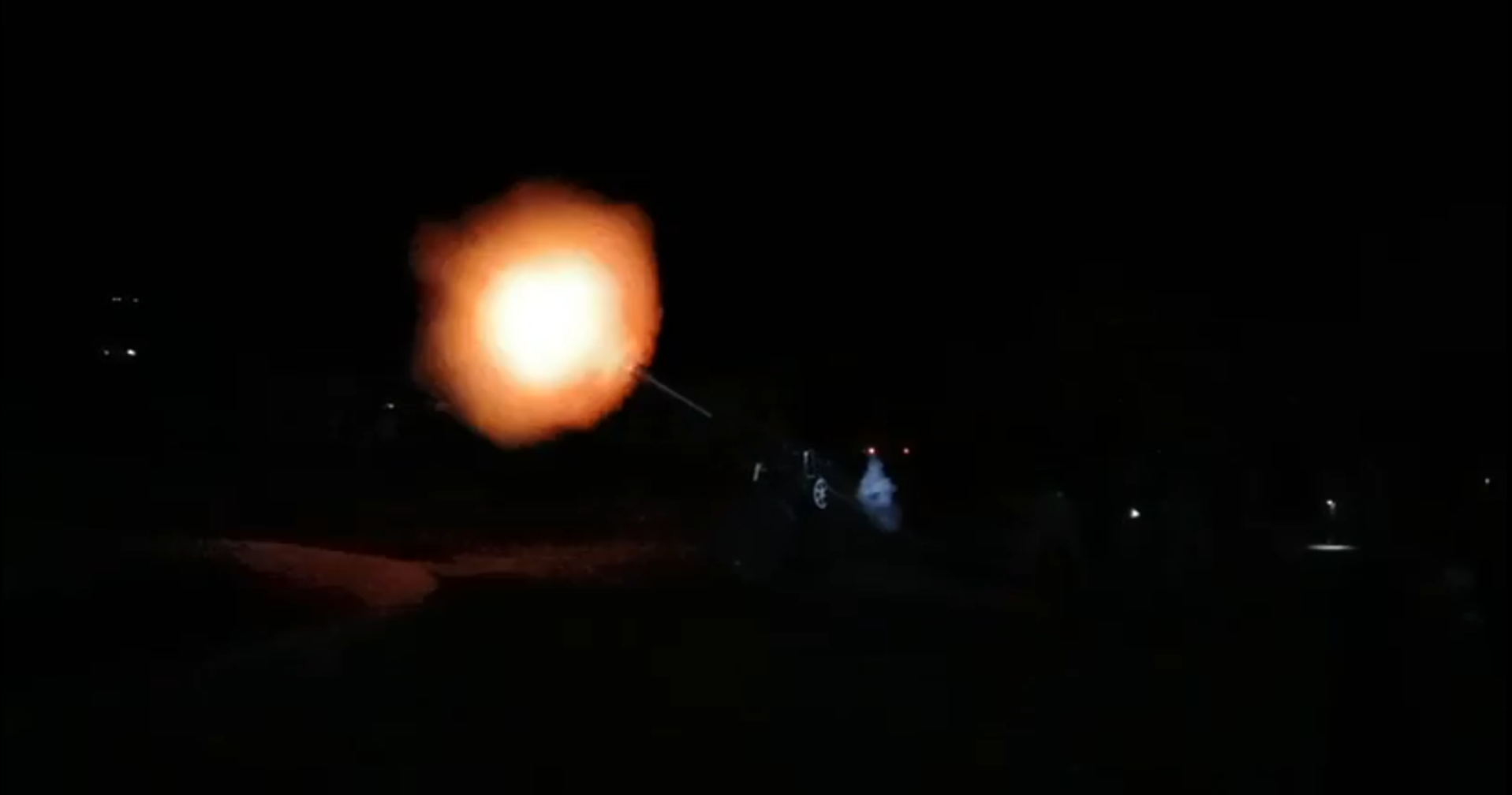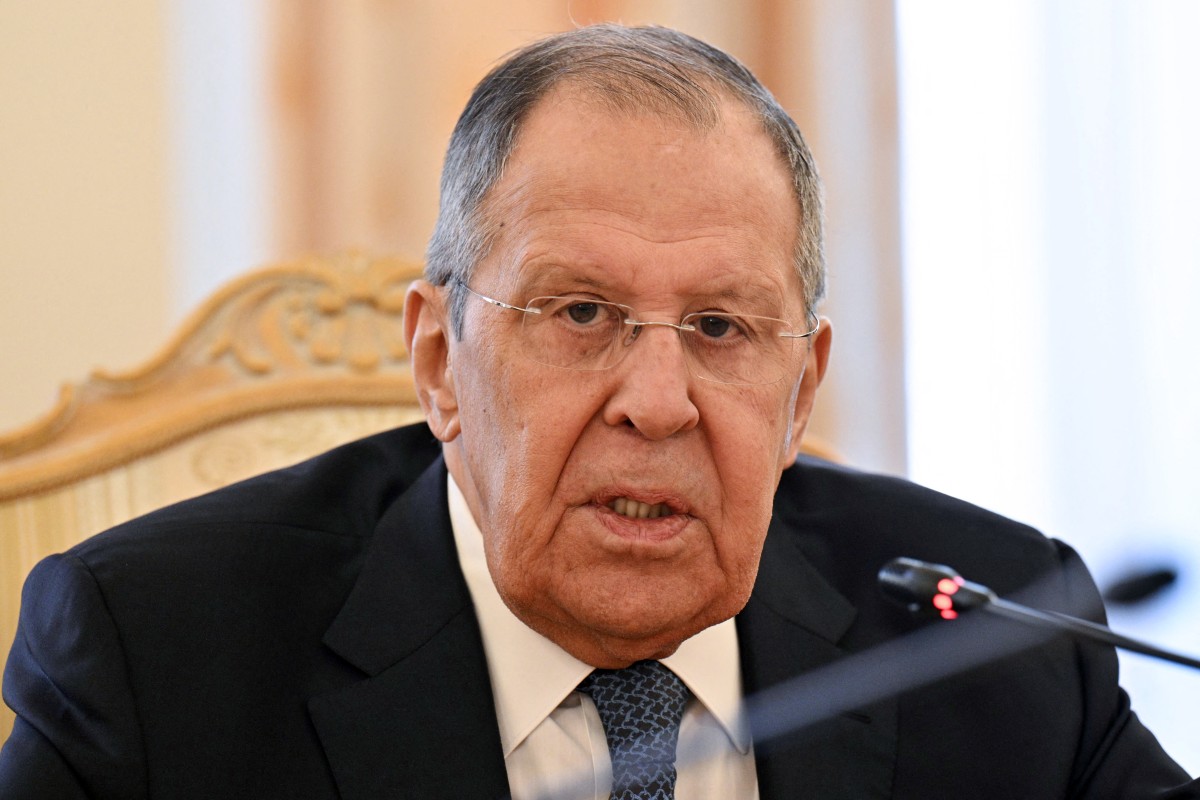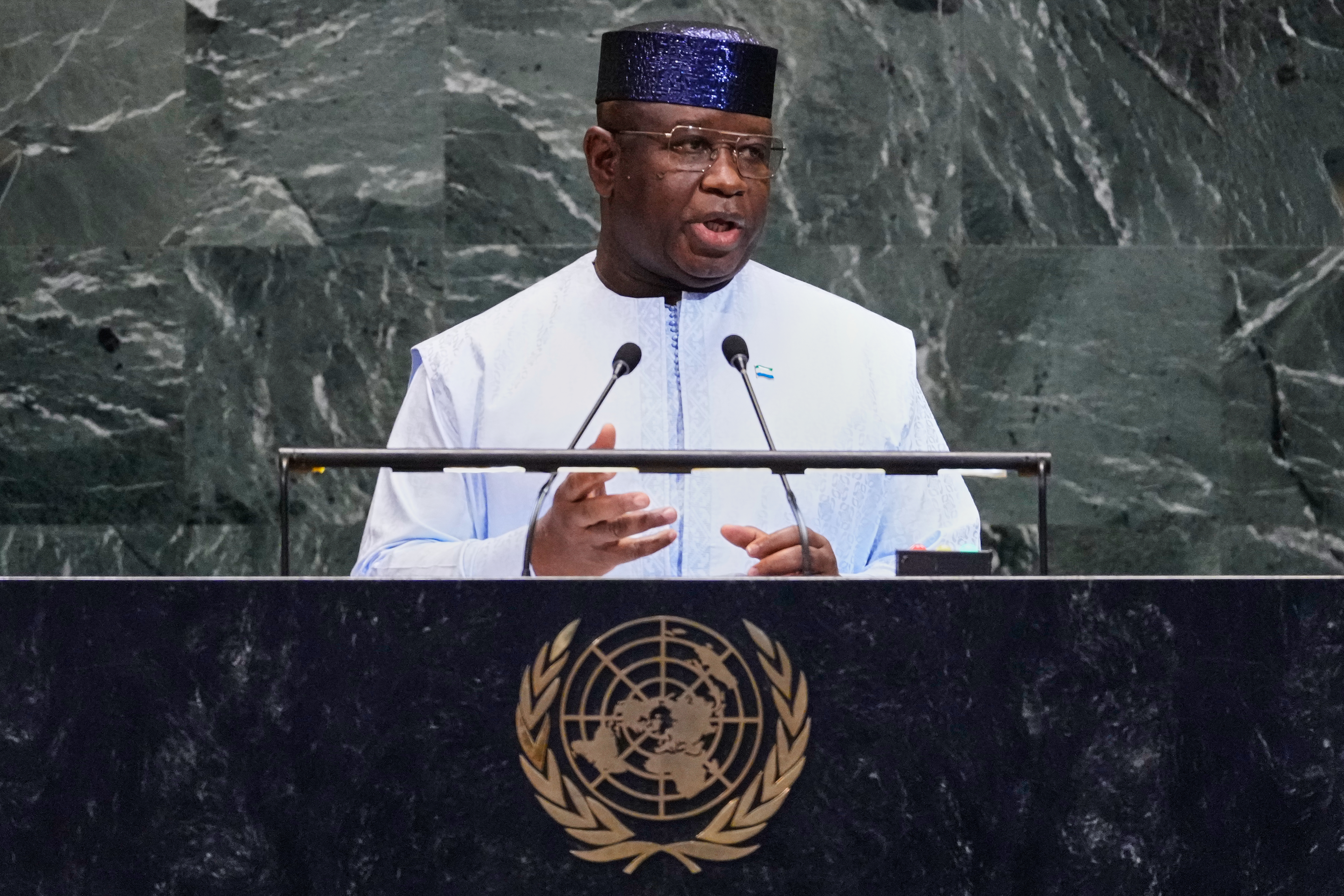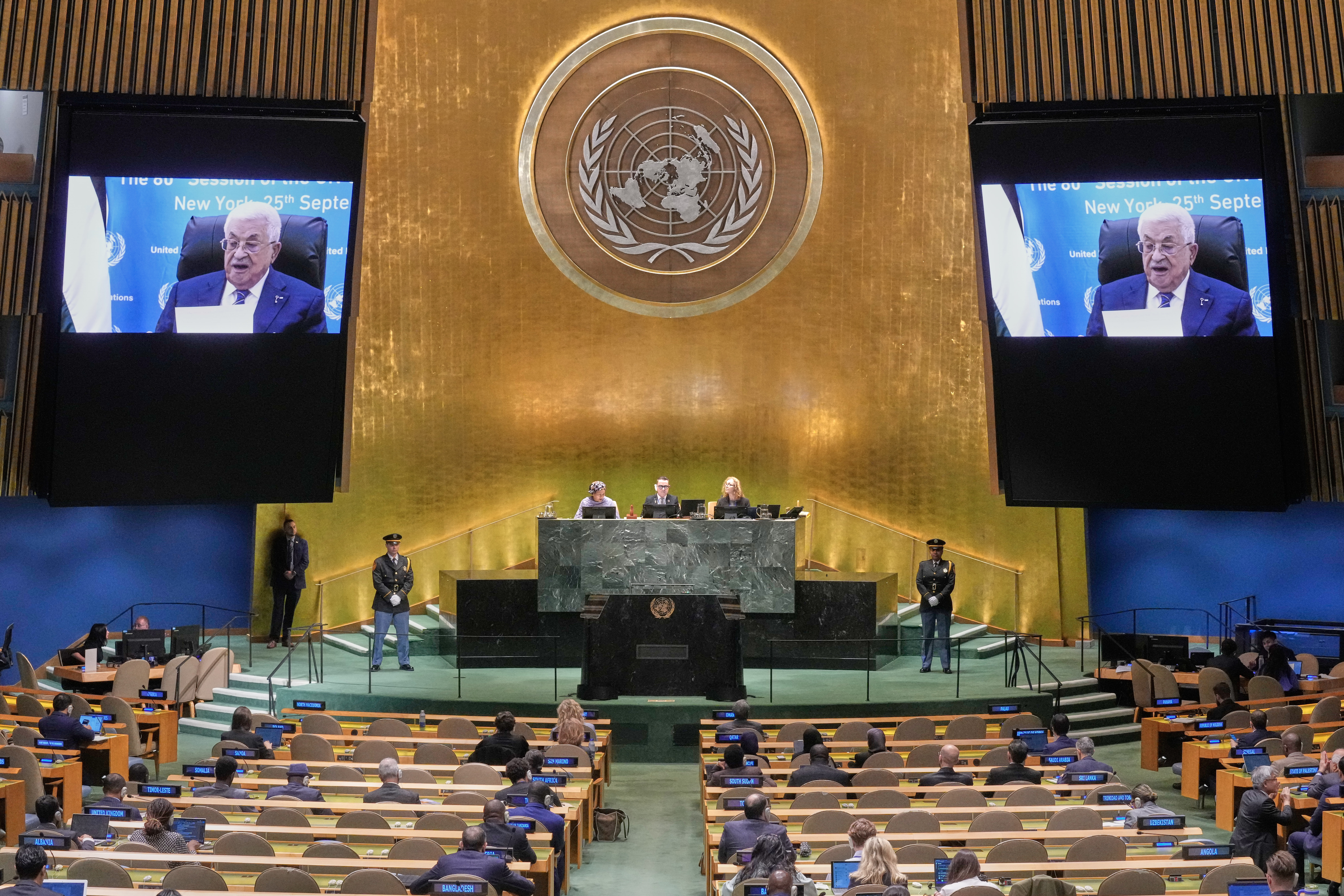WASHINGTON: US President Donald Trump said Thursday that progress could soon be made toward agreements on Gaza, signaling that talks with key Middle Eastern partners were moving forward even as he prepared for a high-profile meeting with Pakistan’s Prime Minister Shehbaz Sharif.
“It could be today,” Trump told reporters, stressing that discussions with regional leaders had been “very strong.”
He pointed to meetings with Qatar, Saudi Arabia, the United Arab Emirates, and Jordan as particularly productive.
“We had a really great meeting. I think a lot was determined at that meeting. And I have to meet with Israel, and I have to do that also. They know what I want, and we think, I think we can get that one done. I hope we can get it done.”
Trump’s comments come at a time of renewed urgency in addressing the Gaza conflict, with Washington seeking to position itself as a broker in the region while balancing its relationships with Arab states, Israel, and NATO ally Turkey.
Talks with Erdogan
Trump hosted Turkish President Recep Tayyip Erdogan at the White House for a two-hour meeting focused on defense cooperation and Turkey’s role in the broader Middle East.
The discussion centered in part on Ankara’s push to rejoin the US-led F-35 fighter jet program, from which it was expelled after purchasing Russia’s S-400 missile defense system.
Trump suggested a resolution might be close.
“He needs certain things, and we need certain things, and we’re going to come to a conclusion. You’ll know by the end of the day,” Trump said, adding to Erdogan: “And I think you’ll be successful with buying the things you would like to buy.”
While calling the meeting “good,” Trump also pressed Erdogan to scale back Turkey’s reliance on Russian energy imports, warning that continued purchases risk undermining Western efforts to isolate Moscow.
“The best thing he could do is not buy oil and gas from Russia,” Trump remarked.
Despite tensions over Turkey’s human rights record and its strained ties with Israel, Trump described Erdogan as a leader respected by both Russian President Vladimir Putin and Ukrainian President Volodymyr Zelensky.
“I think he could have a big influence if he wants to,” the US president said.
Gaza and Syria
The Erdogan meeting also touched on Gaza, where Turkey has been an outspoken critic of Israel’s military campaign since October 2023.
In his UN address this week, Erdogan accused Israel of genocide, charges both Washington and Tel Aviv reject. Trump, however, has urged Israel to remain “reasonable” in its dealings with Ankara, recognizing Turkey’s growing influence across Syria and the wider Middle East.
Trump credited Erdogan with playing a pivotal role in Syria, where Ankara-backed rebel groups toppled President Bashar al-Assad late last year.
“I think President Erdogan is the one responsible for Syria, for the successful fight in ridding Syria of its past leader,” Trump said.
Meeting with Pakistan’s Sharif
Trump will now turn his attention to Pakistan, where he is scheduled to meet Prime Minister Shehbaz Sharif in Washington. According to Radio Pakistan, the talks will focus on counter-terrorism cooperation, economic ties, and regional security, including Afghanistan.
A senior Trump administration official told Reuters that the White House remains committed to “advancing US interests in the region, which includes engaging with Pakistan and the government leaders.”
The meeting, Sharif’s first official visit to Washington since assuming office, is seen as a chance to strengthen bilateral relations after years of strain. It follows a US-Pakistan trade deal announced in July and comes amid delicate regional maneuvering involving India, where Washington is still pursuing a trade agreement.
Sharif is expected to use the broader international stage to highlight Pakistan’s concerns about Kashmir, Palestine, and climate change when he addresses the UN General Assembly on September 26.
As Trump positions himself at the center of negotiations spanning Gaza, Ukraine, and South Asia, his back-to-back meetings with Erdogan and Sharif underscore both the opportunities and challenges facing US diplomacy in a rapidly shifting geopolitical landscape.
